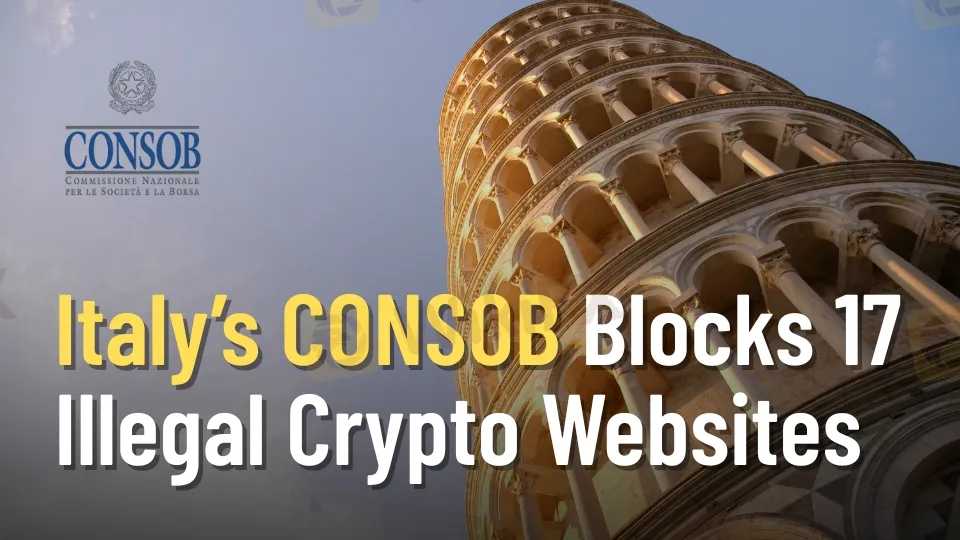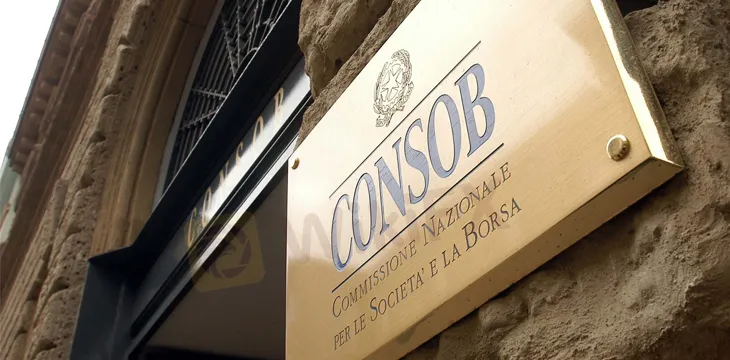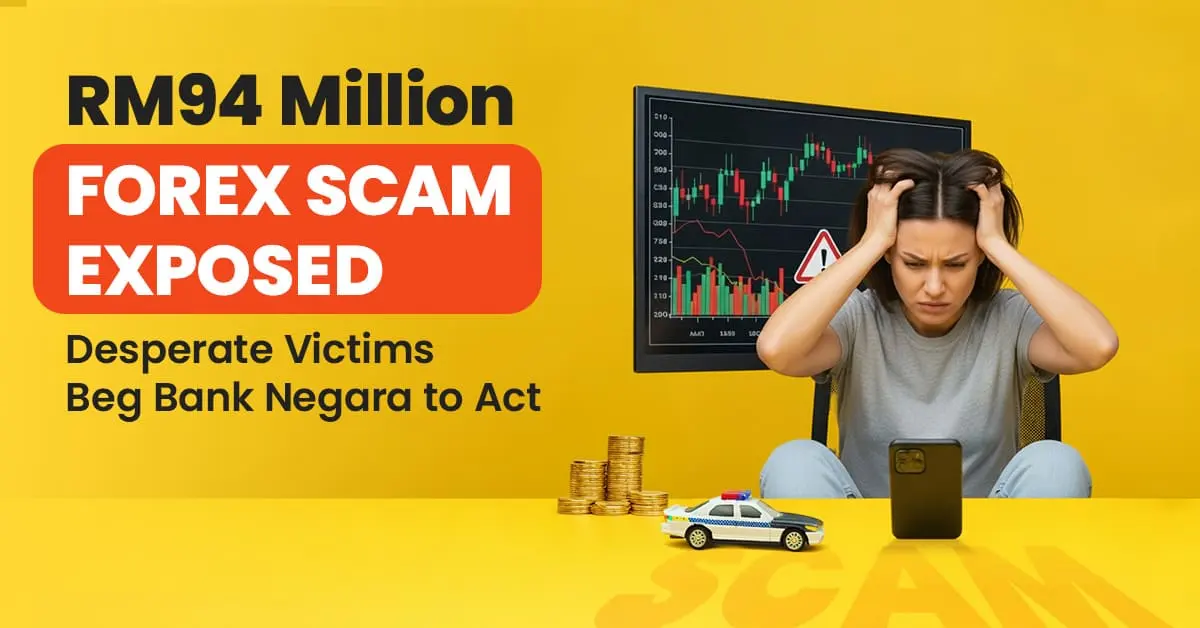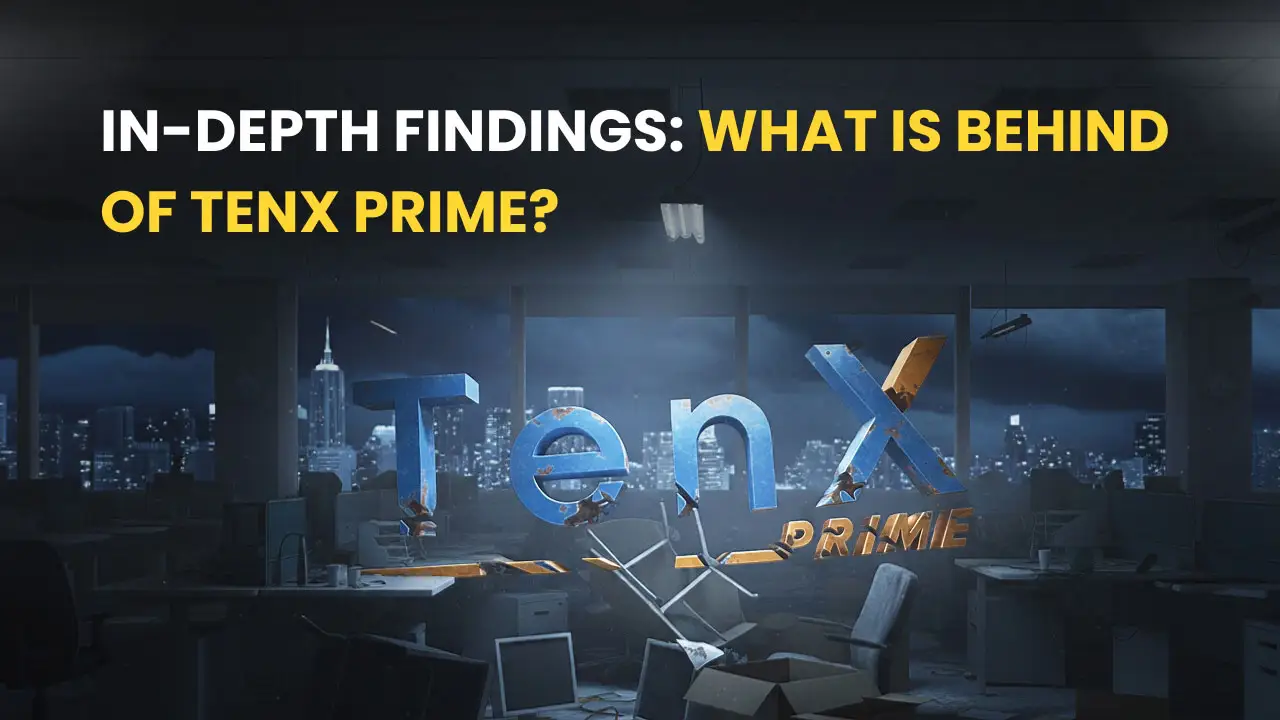Italy’s CONSOB Blocks 17 Illegal Crypto Websites
Abstract:CONSOB blocks 17 crypto scam websites using fake politician ads, raising total blackouts to 1443 since 2019 under the Growth Decree and MiCAR rules.

Italys CONSOB Orders Blackout of Crypto Scam Sites
The Italian Companies and Exchange Commission (CONSOB) has ordered the blocking of 17 websites offering unauthorized financial and crypto-asset services, including three platforms that used deepfake ads featuring prominent politicians.
The watchdog confirmed that the banned sites illegally promoted investment schemes by cloning the faces and voices of Prime Minister Giorgia Meloni, Deputy Prime Minister Matteo Salvini, Democratic Party leader Elly Schlein, and Action Party leader Carlo Calenda. None of the politicians had any connection to the fraudulent promotions.
Three Deepfake Scam Sites Targeted
CONSOB specifically ordered the blackout of:
- it-more.culinaryjoy.sbs
- ayquozeber.com
- cyberirfy.icu
These platforms were found to be promoting unauthorized crypto and investment services through manipulated political endorsements.

Additional 14 Websites Blocked
Alongside the deepfake sites, CONSOB also shut down 14 other domains offering illegal financial services, including:
- InvestiumGroups – investiumgroupsltd.com
- Protradealliance – protradealliance.com
- Aureo Flowdex – aureo-flowdex.com
- Servelius – servelius.com
- BrokerageAI – brokerageai.org
- ZZCoin – zzcoingy.com
- Ofuyc – multiple cloned domains
- Veltrixmax-invest.com – veltrixmax-invest.com
- Orolonix-invest.com – orolonix-invest.com
Rising Number of Blackouts
Since July 2019, when CONSOB was granted authority under the Decreto Crescita (Growth Decree), the regulator has blocked 1,443 websites linked to fraudulent financial intermediaries. The latest actions also align with the EU‘s MiCAR regulation (2023/1114) and Italy’s Legislative Decree No. 129 of 2024.
About CONSOB
The Commissione Nazionale per le Società e la Borsa (CONSOB) is Italy‘s financial markets regulator. Established in 1974, it oversees securities markets, investment firms, and public offerings. CONSOB’s mandate includes protecting investors, ensuring market transparency, and combating financial fraud. The authority has the power to suspend trading, sanction intermediaries, and block access to websites offering unauthorized financial services.

Read more

Scam Alert!! Family Loses RM750,000 in “Pyramid” Investment Scheme
A family of five in Kuching has lost RM750,000 in a “pyramid style” investment scam. They were promised huge profits but received nothing after five years.

RM94 Million Forex Scam Exposed | Desperate Victims Beg Bank Negara to Act
A growing number of Malaysians are demanding justice after falling prey to what is now being called one of the largest Forex investment scams in recent years, with losses totalling over RM94 million.

In-Depth Findings: What is Behind of TenX Prime?
TenX Prime currently has been accused by dozens of trader complaints, claiming its PAMM system went offline in early October 2025, leaving investors unable to access funds or withdraw. Multiple complaints point out two PAMM managers — “Chris Anderson” and “Paul Gold Hunter” who promoted investment pools and directed followers into TenX Prime.

Romance Scams in Forex: A Growing Threat to Investors in the United Kingdom
Warnings about the rise of romance scams in the UK forex market, where fraudsters exploit personal relationships to deceive investors online.
WikiFX Broker
Latest News
The Ultimate 2025 Guide to Courses for Forex Trading
Best Forex Broker in the World 2025: Top Scalping Picks
EU Capital Markets Union: Germany's Merz Calls For A "Wall Street" For Europe
FBS AI Assistant: Trading Tool for Real-Time Market Analysis
US agency overseeing nuclear stockpile to layoff staff as shutdown continuess
Hong Kong Monetary Authority Issues Alert on Fraudulent Bank Interfaces Impersonating Four Banks
Scam Alert!! Family Loses RM750,000 in “Pyramid” Investment Scheme
The "Triumph Of Big Government" Created The Current Sovereign Debt Crisis
US firm collapses ringing \alarm bells\, says Bank of England chief
WikiEXPO 2025 Dubai, One of the World’s Most Influential Fintech Expos, Kicks Off This November 11!
Rate Calc

